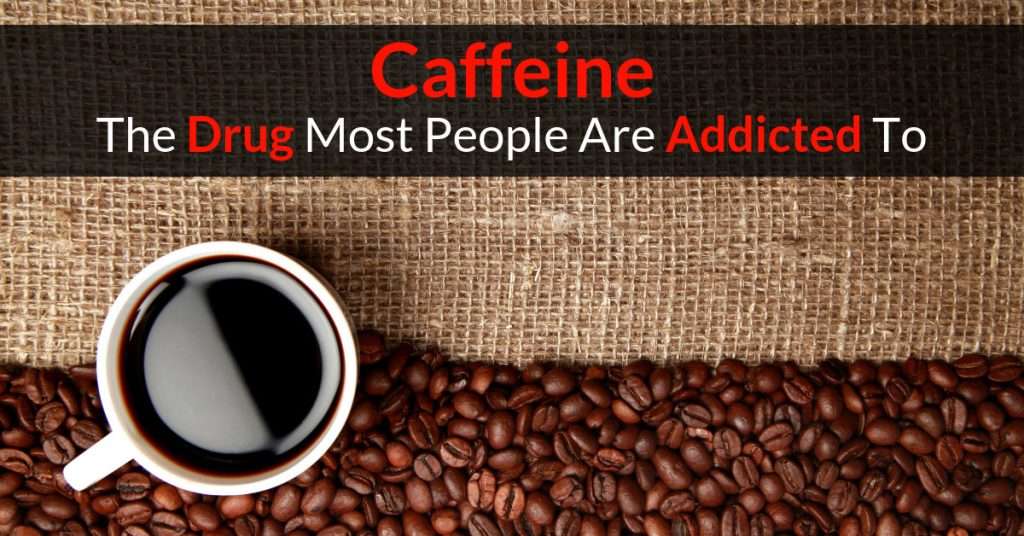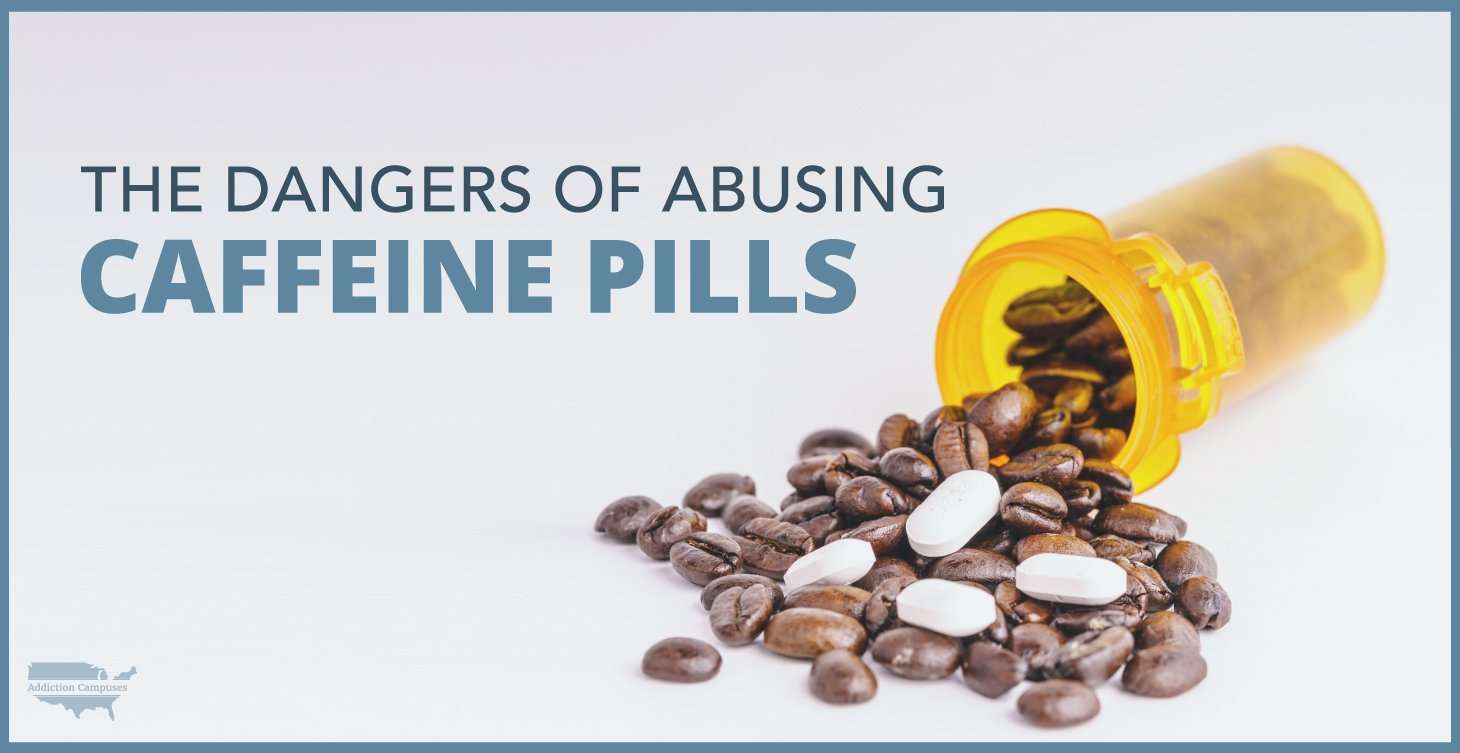Detection In Body Fluids
Caffeine can be quantified in blood, plasma, or serum to monitor therapy in neonates, confirm a diagnosis of poisoning, or facilitate a medicolegal death investigation. Plasma caffeine levels are usually in the range of 210;mg/L in coffee drinkers, 1236;mg/L in neonates receiving treatment for apnea, and 40400;mg/L in victims of acute overdosage. Urinary caffeine concentration is frequently measured in competitive sports programs, for which a level in excess of 15;mg/L is usually considered to represent abuse.
The Most Abused Drug: Tobacco/nicotine
Tobacco/nicotine is the most abused drugs in the world. According to recent statistics carried out by the World Health Organisation, about 15 billion cigarettes are sold on a daily basis. By 2030, if trends continue as it is smoking will kill one in six people globally. Smokers are not the only ones affected by their abuse; research also shows that people who breathe in the smoke are also affected. Numerous cancers and diseases have been linked to smoking.
What Are The 10 Most Addictive Substances On Earth
A study published in the medical journal The Lancet assessed 20 substances to determine the harm of each drug. Researchers divided the parameters into 3 categories: physical harm, dependence, and social harms. The results of the dependence category were used to determine the 10 most addictive substances on earth.
Dependence was split into 3 determining factors: intensity of pleasure, psychological dependence, and physical dependence. Highly pleasurable drugs are commonly abused because of the initial affect and the euphoria that follows. Psychological dependence is characterized by repeated use of a drug, the fear of stopping, and negative consequences and physical dependence involves increasing tolerance, cravings, and withdrawal symptoms.
Below is a list of how each drug scored based on dependence.
You May Like: How Does Dunkin Donuts Make Their Mocha Iced Coffee
Toxicity And Drug Interactions
When used alone, benzodiazepines carry an extremely low risk of acute toxicity. However, benzodiazepines often are used with other types of medications, including other drugs with abuse potential, and these drugs can enhance the toxic effects of benzodiazepines. The latter interact synergistically with other central nervous system depressants, including other hypnotics, sedating antidepressants, neuroleptics, anticonvulsants, antihistamines and alcohol.8 Fatal overdoses in addicted patients often involve the combination of benzodiazepines and alcohol, with or without opiates. In addition, pharmacokinetic drug interactions may occur. For instance, selective serotonin reuptake inhibitors may increase diazepam blood levels,9 and nefazadone may increase alprazolam levels10 through hepatic enzyme inhibition, leading to increased sedative-hypnotic effects or side effects.
So Who Is The Villain

Any smoker or coffee drinker could tell how both the substances are certainly addictive. However, new research indicates that besides nicotine, there are other chemicals that contribute to smoking addiction, meaning, nicotine alone might not be as addictive as initially thought.;If you take too much nicotine or caffeine, they will both give you similar symptoms such as vomiting, nausea, anxiety, dizziness, headache, arrhythmia, and insomnia. If you quit both substances cold turkey, it may result in headaches and nausea as well as fatigue and irritability.
It is no surprise that smoking causes the worst damage to health, but that damage is caused by the tobacco in cigarettes. Although it is reported that tobacco contains some nicotine and nicotine itself is not harmful, when tobacco burns, it also exposes users to other dangerous chemicals such as tar and arsenic.;As said earlier, both nicotine and caffeine are addictive. That is why many users of the latter, but especially caffeine addicts may find it hard to give up their coffee, tea, or cola habit, even when it threatens their health.
Also Check: Caffeine In Diet Peach Snapple
The 4th Most Abused Drug: Over The Counter Medications
Over the counter medications are easily available without a prescription and some are highly abused and addictive. However, many people who abuse these medications eventually turn to other more powerful drugs. OTC medications that contain Dextromethorphan are the most abused. However, caffeine pills and OTC medicine that contain ephedrine are also commonly abused. Many OTC medications are addictive and have many serious long term health effects.
Who Should Limit Coffee Or Caffeine Intake
Despite these benefits, its worth mentioning that too much caffeine per day may do more harm than good.
For this reason, various authorities recommend you limit your intake to 400 mg of caffeine per day. Thats the equivalent of 45 cups of coffee .
Moreover, its safest to limit the amount you consume per dose to no more than 200 mg (25,
34 ).
Finally, pregnant women are advised to limit their daily intake to no more than 200 mg of caffeine per day, the equivalent of 23 cups of coffee .
Summary:
Pregnant women and those who metabolize caffeine slowly may want to limit coffee and other caffeine-rich foods. Individuals suffering from certain medical conditions may also want to limit their intake.
Don’t Miss: A&w Root Beer Have Caffeine
Health Solutions From Our Sponsors
Med Sci MonitJ Clin HypertensConsumer ReportsAm J Physiol Integr Comp PhysiolIndian J Phsyiol PharmacolAm J Clin NutrJ Pharmacol Exp TherJ Amer Diet AssocExp Clin PsychopharmacolJ Am Coll NutrInt J Obes Am J Clin NutrJ Am Diet AssocAddictionAm J PsychiatryAnn Intern MedPsychopharmacologyAm J PsychiatryPsychosom MedAm J Clin NutrAnn Nutr MetabJ HypertensPsychiatry Clin NeurosciClin SciAm J Clin NutrAm J Drug Alcohol AbusePsychopharmacologyHum PsychopharmacolNeurosci Biobehav RevAm J Clin NutrObes ResJAMA
The Dangers Of Abusing Caffeine Pills
Caffeine is one of the most widely consumed psychoactive substances in the world. Because it occurs naturally, many people believe that it is safe to consume. However, too much caffeine may be dangerous. However, the effects of caffeine can vary depending on the individuals’ metabolism.
Caffeine is a natural stimulant that enhances dopamine signaling in the brain. Dopamine is a chemical in the brain which helps control movement, motivation, and emotions, so enhanced dopamine signaling makes a person feel more awake and alert. This alert and awake feeling is why caffeine is classified as a stimulant.
The effects of caffeine usually reach their peak level in the blood about an hour after consumption. Individuals may continue to feel the effects of caffeine pills for four to six hours afterward.
Read Also: Does A&w Root Beer Have Caffeine
How Long Does The Feeling Last
When taken in beverage form, caffeine begins to take effect within five minutes, and reaches its peak effect in about 30 minutes. It takes about four hours for half of a given dose of caffeine to be metabolized by the body. Normally, almost all ingested caffeine is metabolized, and there is no day-to-day accumulation of the drug in the body.
Energy Drinks And Caffeinated Beverages Essay
both is caffeine. Caffeine is a mild stimulant drug and is considered to be the most popular used drug in the world . The differences in energy drinks and caffeinated beverages can be drastic when comparing their caffeine levels. The main health risks that are associated with energy drinks can be directly linked to their main ingredient, caffeine . Consuming excess caffeine can cause a caffeine overdose. Energy drinks increase the risk for a caffeine overdose
Also Check: Mug Root Beer Have Caffeine
Coffee Has Some Health Benefits
Unlike most other addictive substances, coffee and caffeine consumption can have certain health benefits.
The most well-researched include:
- Improved brain function: Regularly drinking coffee may improve alertness, short-term recall and reaction time. It may also reduce the riskof Alzheimers and Parkinsons diseases (
- ).
Summary:
Unlike most other addictive substances, coffee and caffeine provide some health benefits. However, its best to limit your intake to 400 mg of caffeine, or about 24 cups of coffee per day.
Symptoms Of Caffeine Pill Abuse

Caffeine pills may not be addictive, but that doesnt necessarily make them safe. Like any other substance, people may abuse caffeine pills. Too much caffeine can be toxic to the body and cause unpleasant or unwanted side effects.
There is a wide range of effects caffeine can have on the bodys metabolism. Caffeine can stimulate the central nervous system, act as a diuretic, increase the release of acids in the stomach, and increase blood pressure.
For most people, it is not harmful to consume up to 400mg of caffeine a day. However, consuming higher doses of caffeine can cause unpleasant symptoms such as:
- restlessness, shakiness, and jitters
- rapid or abnormal heart rhythm
- dehydration
Recommended Reading: How Is Nespresso Decaf Coffee Made
Caffeines Effect On Your Brain
When you consume caffeine, its quickly absorbed by your gut before traveling to your brain .
Once there, it has a direct stimulating effect on your brain cells.
This is because caffeines chemical structure resembles that of adenosine, a molecule that has a relaxing effect on the central nervous system .
This allows caffeine to fit into adenosine receptors in the brain, blocking them and preventing adenosine from binding to them to produce feelings of tiredness.
In turn, the blocked receptors stimulate the release of other natural stimulants and allow some of them, such as dopamine, to work more effectively. This further increases alertness and reduces feelings of tiredness (
Put simply, caffeine works in two ways:
The end result of caffeines effect on the brain is feelings of alertness, well-being, concentration, self-confidence, sociability and motivation to work (
Caffeine acts as a stimulant on the brain, reducing fatigue, increasing alertness and enhancing concentration.
Informative Essay On Caffeine
Caffeine. From your morning cup of coffee to the pain relievers for your headache, nearly 90% of Americans consume it daily, making it Americas most popular drug. Caffeine is the most widely used stimulant around the world and present in many different products including coffee, tea, energy drinks, chocolates, and over-the-counter medications. Caffeine is a stimulant to the central nervous system that can cause physical dependence, but doesnt threaten the health of the consumer the way addictive
Don’t Miss: Does Beer Have Caffeine
What Is Caffeine Addiction
Caffeine is a Central Nervous System Stimulant that has the ability to enhance concentration, increase metabolism, and boost mood. Whether it comes from coffee, tea, energy drinks, or soda, many people feel like they need Caffeine in the morning to increase alertness and the motivation to work. More than 90% of adults regularly drink Caffeine in the United States, consuming an average of 200 mg of Caffeine per day the equivalent of two 6-ounce coffees or five 12-ounce cans of soft drinks. In most cases, drinking Caffeinated beverages is a relatively safe and non-harmful habit; however, when the need for Caffeine crosses the line from a pleasant pick-me-up to a daily necessity, addiction is possible.
Caffeine Addiction Can Look And Feel Like Other Disorders
The stimulating effects of caffeine can sometimes cause physical symptoms and behaviors that look and feel likeand therefore be easily confused withother disorders. Therefore, it is important to let your doctor or mental health clinicians know how much caffeine you are consuming if you are being assessed for any condition.
For example, caffeine intoxication produces symptoms that can easily be confused with anxiety disorders, such as panic attacks. Too much caffeine can also worsen symptoms of these disorders by intensifying feelings of worry, causing racing thoughts, increasing heart rate, and preventing relaxation and good-quality sleep.
People who are overstimulated with caffeine can also exhibit symptoms consistent with attention deficit disorders. Conversely, caffeine withdrawal shares similar symptoms with mood disorders. Other health concerns that can be confused with caffeine intoxication include:
- Sinus conditions
- Medication-induced side effects, such as akathisia, or an inability to stay still
It can also be mistaken for and worsen symptoms of withdrawal from other substances, such as amphetamines;and cocaine. Stimulant drugs such as these are often cut with caffeine, increasingly the likelihood that caffeine withdrawal is involved in withdrawal from these drugs.
Read Also: Will Coffee Help Me Lose Weight
Next Steps To Consider
If you feel that your responses to;caffeine are affecting you negatively in any way, speak to your healthcare provider. Similarly, if you have another health condition that might be impacted by caffeine use, such as heart disease, or even if you are pregnant or breastfeeding, discuss options with your doctor right away.
The vicious cycle of addiction is often the same with caffeine as it is with other addictive substances. As the effects of the caffeine begin to wear off, you might feel a crash in energy;and that you can’t keep going without another boost. Your doctor can help you find ways to move past this without giving in.
Since stopping “cold turkey” can make you feel worse, it is important for most people;to reduce caffeine intake gradually rather than abruptly. Your doctor can help you devise a plan that is suitable for you based on your typical caffeine consumption. This can help reduce or eliminate any withdrawal effects.
An Overview Of Stimulants And How They’re Used
Stimulants are a class of psychoactive drug that increases activity in the brain. These drugs can temporarily elevate alertness, mood, and awareness. Some stimulant drugs are legal and widely used.
Many stimulants can also be addicting. Stimulants share many commonalities, but each has unique properties and mechanisms of action. Drugs that are classified as stimulants include:
- Caffeine
- Prescription stimulants
Don’t Miss: Does The Caramel Ribbon Crunch Frappuccino Have Caffeine
Where Did Barbiturates Originate From
Barbiturates are basically a closed-chain ureic compound, whose nucleus is malonylurea. Malonyurea is a combination of urea and malonic acid, an acid derivative taken from apples. Barbiturates were synthesized in 1864 by Adolf von Baeyer. The process was then perfected by the French chemist Edouard Grimaux in 1879.
How Is Caffeine Used

Caffeine is used in a number of different products. The amount of caffeine in products can vary dramatically, so its always best to check the label. The average amounts are listed below.
Average amounts3
| Average caffeine content | |
|---|---|
| Espresso | 145 mg caffeine per 50ml cup |
| Caffeinated beverage or energy drink | 80 mg caffeine per 250ml cup |
| Instant coffee | 80 mg caffeine per 250ml cup |
| Black tea | 50 mg caffeine per 220ml cup |
| Cola drinks | 36.4 mg caffeine per 375 ml can |
| Milk chocolate |
Adapted from Food Standards Australia & New Zealand .
Recommended Reading: Caffeine In Diet Snapple Lemon Tea
A Fast & Easy Solution Forincreasing Your Energy & Improving Memory
There are a ways for increasing your energy levels and improving memory + focus – diet and exercise being two important factors.
Unfortunately, they take time and most people are either NOT patient or need faster results, with less effort…
This is the exact problem I ran into with myself and my parents.
Because of this, I needed to find a simple, easy and fast solution for improving our energy levels and focus in MINUTES, without the use of drugs, worthless supplements or following a restrictive diet.
If this is something you’re also interested in, you can easily copy my “proven formula”, implement it and start seeing and feeling results within minutes…
Caffeine Is It Helping Or Hurting America
Caffeine is the most abused drug in the world. Many people wake up, and start there day with some sort of caffeine. Some it is for the energy boost, and to help them stay awake and focused. Others it is for the addictive crave. It is the most popular drug in the United States. Caffeine is in almost everything such as, sodas, over-counter medication, prescription drugs, cigarettes, foods, etc. The most consumed sources of caffeine are coffee and tea, and it can be harmful on your health
You May Like: Can You Drink Coffee After Wisdom Teeth Removal
What Are Drugs That Slow Down The Bodys Functions And Reactions
depressants Drugs that slow down the bodys functions and reactions, including heart and breathing rates. Depressants can affect a person mentally and emotionally by giving a false sense of well-being through reduced anxiety and relaxation. Examples of depressants include tranquilizers, barbiturates, and alcohol.
Depression And Emotional Blunting
An association has been noted between benzodiazepine use and depressive symptoms and, in some cases, the emergence of suicidal ideation. Some evidence indicates that higher benzodiazepine dosages are associated with an increased risk of depression and that reducing the dosage or discontinuing therapy may resolve the depressive symptoms.15 Although the mechanism of this action is unclear, benzodiazepine-related depression might occur as a physiologic result of a reduction in central monoamine activity.
Emotional anesthesia may also be seen in clinical practice. This effect may be sought by drug addicts who become progressively more incapable of tolerating their emotions and life stressors.
Recommended Reading: Is There Caffeine In Snapple